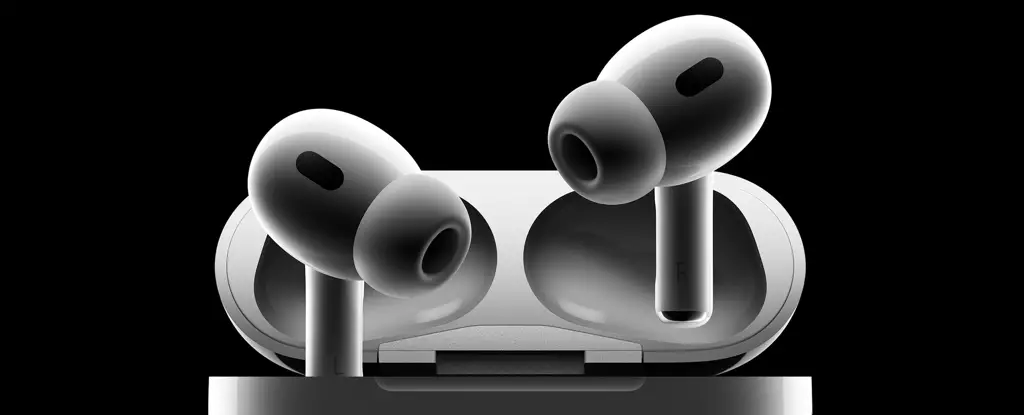In a groundbreaking move that could redefine the landscape of hearing aids, Apple has received regulatory approval from the U.S. Food and Drug Administration (FDA) to introduce a feature within its AirPods Pro 2 that enables the devices to function as hearing aids. This innovative addition is particularly significant given the prevalence of hearing loss affecting millions of individuals in the United States and beyond. Positioned at a price point of $249, the AirPods Pro 2 offers an affordable alternative to traditional hearing aids, which often carry hefty price tags that can exceed $2,000.
Hearing loss is not just a personal issue; it’s a public health concern. The FDA’s acting director, Michelle Tarver, highlighted the importance of making hearing support more accessible. Her comments underscore how Apple’s new feature might not only provide convenience but could also serve as a substantial resource for those suffering from mild to moderate hearing loss. The qualitative research presented to the FDA indicated that users found the AirPods Pro 2 equally beneficial as professionally fitted hearing devices, a promising prospect for users who may have shied away from conventional options due to stigma or cost.
One of the most impressive aspects of this new functionality lies in its user-centric approach. The AirPods Pro 2 will leverage Apple’s health technology, allowing users to conduct a hearing test that takes merely five minutes. This test is designed to create tailored hearing profiles that integrate seamlessly with users’ daily activities, such as listening to music, watching movies, or taking phone calls. By transforming auditory experiences based on individual hearing capabilities, Apple blurs the lines between consumer technology and healthcare, emphasizing how everyday devices can address significant health issues.
Furthermore, the integration of this hearing aid feature into devices that many people already own can potentially remove barriers that typically deter individuals from pursuing hearing assistance. For many, the notion of treating hearing loss with traditional aids can seem intimidating or excessive; Apple’s initiative appears to make the process more approachable and less stigmatized.
The announcement also correlates with Apple’s broader mission to incorporate health and fitness features into its product ecosystem. This strategy is not just about convenience but resonates with a growing trend in technological convergence where health monitoring becomes an intrinsic part of consumers’ everyday lives. For instance, features already embedded in the Apple Watch serve various health and wellness purposes, from tracking heart rates to estimating ovulation. Developing hearing aids adds another crucial dimension to Apple’s health-related offerings, appealing to millions who might be on the fringes of seeking help for hearing loss.
Moreover, as we navigate an increasingly digital world, advances like these represent a significant shift towards democratizing health technology. The idea that one might simply use their iPhone or iPad as a tool for managing hearing is groundbreaking. It signifies the potential for innovative solutions that can be tailored to fit the consumer’s lifestyle and preferences.
Moving forward, Apple’s plan is to roll out these hearing aid features in over 100 countries, contingent upon health authority approvals. This expansive reach signals Apple’s commitment to ubiquitous health support, enabling more individuals to take control of their hearing health in a simple, convenient manner. The excitement surrounding this announcement resonates within the hearing-loss community, with voices like Barbara Kelley from the Hearing Loss Association of America praising the initiative as a monumental development.
As Apple integrates hearing health into its suite of products, it positions itself not only as a tech leader but also as a pioneer in emergent healthcare solutions. The company’s dual focus on technology and health can potentially reshape how we approach medical conditions, entwining technology seamlessly with personal health management. As regulatory bodies in various countries evaluate and approve these features, the prospect of an ongoing dialogue between technology, health, and user experience stands to profoundly impact societal attitudes toward hearing health and accessibility.

Leave a Reply